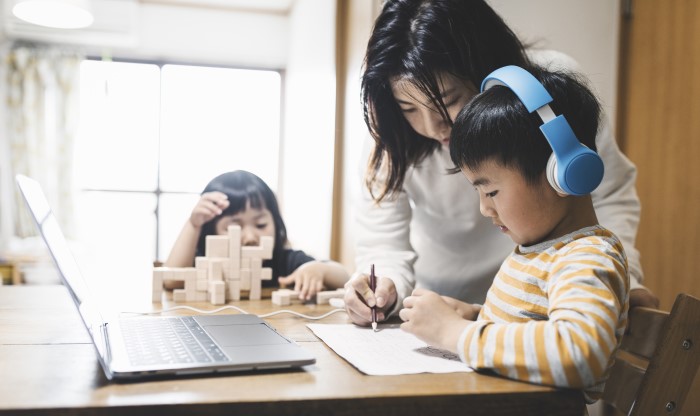Kids Teens
Virtual Learning Tips For Kindergarten Parents

- Kindergarten parents who are not tech-savvy may be intimidated by the concept of virtual learning, but you can make the most of the benefits of this online learning program. Consider some of the following virtual learning tips: a. Send activities that correlate to the child’s current topic of study. For example, if your child is studying the different parts of the body, he or she will enjoy activities that involve reading, comparing shapes, and learning about nature. b. Choose activities that require minimal set-up, aren’t messy, and don’t put too much pressure on your kid’s schedule.
- Monitor your child’s participation in the virtual learning activities. Have a frank conversation with your child about whether he or she is engaging with the online materials. If your child seems under- or non-existent, it’s probably because he or she isn’t fully engaging with the online materials. In this case, try to help your child understand why he or she isn’t engaging with the material.
- Limit distractions. While the use of virtual learning is convenient for many parents, it can be a challenge for teachers to detect visual cues. You should also limit the number of distractions your child receives during the school day. Younger children, for example, maybe distracted by an annoying sibling, a constant app notification, or a sibling’s need to play. Avoid distractions during the day, as they will disrupt their learning and make it difficult for teachers to see your child.
- Be present. Virtual learning should be a collaborative effort between parents and kindergarten teachers. A virtual classroom requires a parent or caregiver to sign the child in without assistance. The student will be able to turn the camera on and off. Often, these kids have limited attention spans, so be available to assist. Having other parents present is essential for the smooth functioning of virtual classes. This will maintain a sense of community and ensure that your child has a good experience.
- Encourage peer interaction. Virtual learning should be interactive, allowing children to interact with each other. The teacher should be able to see and hear visual cues. The child should have some sort of communication option, which can include a phone or email. The parent can coordinate activities with other parents to keep the conversations going. The virtual classroom should be interactive. It is important for a child to communicate with the teacher in real-time.
- Be active. Even though your child can easily sign in to virtual classes without assistance, you should not assume that they can handle this on their own. It will be important to be present so they can answer questions and help you get to know the online class. Besides, it will also give them a sense of community and encourage them to participate in the lessons. If you can, consider letting other kindergarten parents join the online classroom.
- Be available for your child’s physical needs. While most kindergarten students can sign in to virtual classes, you should be a supportive partner. A child who can’t sign in to an online class can turn the camera off and use the microphone. By incorporating physical movements, your child will develop better social skills and better self-awareness. These are just a few of the digital learning tips for kindergarten parents.
- Create downtime. It is important to allow your child time to relax after a busy day of school. This will also help your child learn to focus. For older children, set aside a specific time for homework. When possible, try to limit the number of distractions during the school day. A virtual learning program will help them feel more empowered by learning. They should also be able to control the pace of their learning.
- Be flexible. Virtual learning tips for kindergarten parents should not be rushed. They must be patient and tolerant of their child’s inexperience. As long as the virtual class is well-designed, parents can expect that it will be effective. The online learning process is a good way to help you connect with your child’s teacher and build a strong relationship. You can also learn about the curriculum in these courses.
Continue Reading





